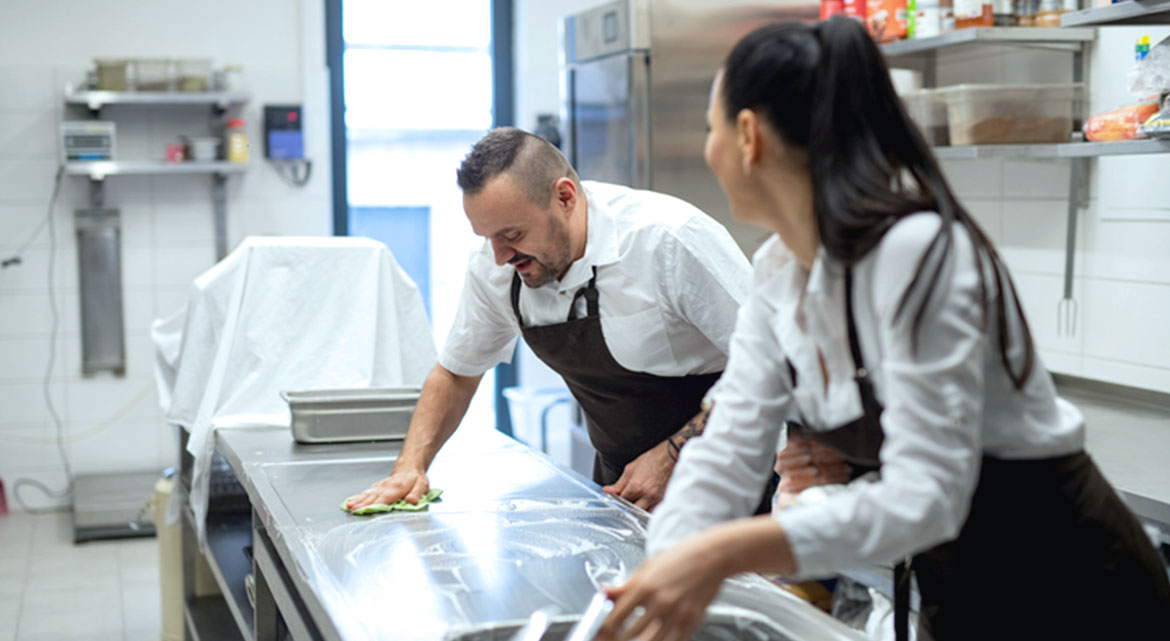Inside the Brighton community food hall opening for the first time on 4 July

For the majority of hospitality businesses opening their doors on 4 July, its a chance to dust off tables and switch on ovens that have remained dormant for the past few months.
However, for Shelter Hall Raw, a food hall built in a Victorian rotunda on Brighton’s seafront, Super Saturday is a grand opening for the very first time – even if the builders are still there. In fact, the project – which has been in the planning for a year – has so sped up proceedings to be ready for this weekend that the walls are unpainted and the counters still MDF. ‘Raw’ is no understatement.
“We wanted to be able to offer something on 4 July to help spearhead the regeneration of the industry and the community, to help to bring things back,” explains Dan Warne, the CEO and co-founder of Sessions Market, the company behind the hall, who quit his role as managing director of food delivery giant Deliveroo last summer in order to set up the project.

Pre-lockdown, food halls were big business. Following the success of projects like the Time Out Market in Lisbon and Eataly in locations around the world, the template – multiple food outlets operating under one roof allowing customers to pick and choose their meals to eat in a communal dining area – has popped up all over this country. Mackie Mayor in Manchester, Trinity Kitchen in Leeds, the Baltic Market in Liverpool, and the capital’s Market Halls and Arcade Food Theatre are among them.
“People like to go out and know that they can make spontaneous decisions there and then,” Warne continues. “But they’re looking for something experiential, too. It’s not just food, it’s seeing the chefs cooking live in front of them.” At Shelter Hall Raw and many others, the venue owner provides marketing, cleaning staff, and staff for kitchen-to-table delivery; many things that hold back start-up restaurants are removed or mitigated, making these market halls a popular proposition for small food businesses.

In the wake of Covid-19, Warne is convinced that market halls will not only help to kick-start restaurant recovery, but also set an example of how to keep customers safe. Even before the pandemic, his Deliveroo experience set him in good stead to make the customer journey in Shelter Hall Raw almost entirely contact-free; adapting this to meet socially distant requirements has been straightforward. A cash-free operation, it will encourage customers to place orders via their phones (providing details that may be used for Track and Trace should a case arise) after walking the one-way route to see what’s on offer. Should they choose to sit outside on the beach, a notification will ping when food is ready to collect; inside, food is brought directly to the table.
At 15,000 square feet, the venue allows for ample space between customers. “We have dividers between tables and have tested the acoustics to make sure that we still get that sense of belonging, while being divided by screens,” explains Warne.
Community is at the heart of Shelter Hall Raw. Within the council-owed building, its restaurants for the first stage of launch are existing local businesses looking to restart quickly, including Brighton favourites such as Fatto A Mano serving pizza and gelato, Lost Boys Chicken, and Toasted by GB Charcuterie. The platform, Warne hopes, will support them to work in the unusual trading conditions of 2020.

“We’re not charging a flat rent that you can’t afford if you have a bad week; it’s a model that’s perfect for these conditions to help people start up again,” Warne explains. “We don’t make any money if our partners don’t.”
Once live music is allowed, Warne wants Shelter Hall Raw to host local musicians and artists whose industries are also struggling, as well as paving the way for the next generation of aspiring chefs. “We have a programme called Sessions Academy where we’ll take on young chefs and work with them on food concepts from the beginning, invest in them and help them to set up shops of their own,” he says.
This weekend’s opening is the first step for Sessions Market, which is already plotting another food hall in Bristol and in any “regional city with a distinct character to it.”
Will the hall’s community focus and Covid-proofing be enough to convince the customers to visit? Warne is confident: “Brighton is a fabulous market with an amazing restaurant scene. There’s an intrinsic sense of community and there’s a great artistic spirit to the area. What a great place to launch a food hall in.” In the meantime, the decorators have their work cut out for them.








